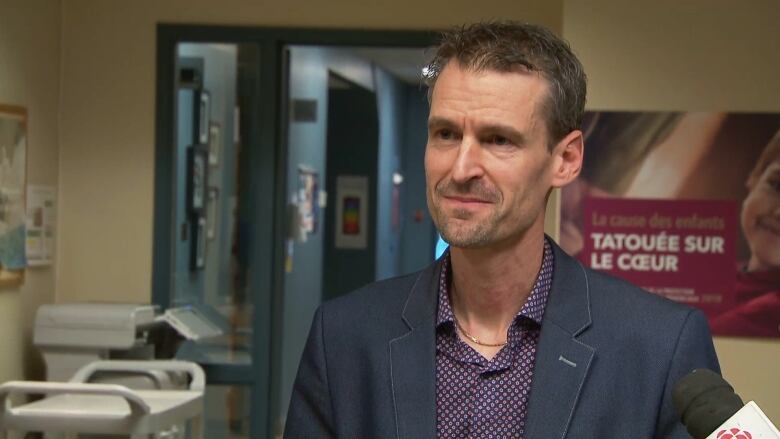Overwhelmed, Chaudire-Appalaches hospitals transfer patients to Quebec City
Number of hospitalized patients has nearly tripled in last week

The Chaudire-Appalaches health authority has started transferring COVID-19 patients to other regionsbecauseit no longer hasenough hospital beds or staff to accommodate the influx of new patients.
The transfers started on Tuesday, according to Marco Blanger, the agency's deputy director-general for health and social services.
So far, seven patients have been transferred to the CHU de QubecUniversit Laval, a large teaching hospital in Quebec City, and one has been transferred to a hospital in Rivire-du-Loup, a city in the Lower St. Lawrence region.
"We've become very limited in our number of hospitalizations, which is why now, we're using our colleagues in the capital region," Blangertold Radio-Canada.
The health authorityhas just 23 beds for COVID-19 patients. But the number of people hospitalized for COVID-19 in the region reached 36on Wednesday, nearly tripling within one week.
Many of these patients are hospitalized at the Saint-Georges hospital, in theBeauceregion. Eleven of them are at the Htel-Dieu de Lvis hospital, and a handful are hospitalized in Thetford Mines and Montmagny.
Staff shortage a big part of the issue

The main reason these transfers are necessaryis because Chaudires-Appalaches is seeing a shortage of health-care workers, according to Blanger.
The health authority is currently short more than 400 staff members who are unable to work, either because they are infected with the virus, were exposed to it, are waiting for a test result or must still get tested.
"It's really a staffing issue," Blanger told Radio-Canada. "The virus is circulating a lot in our community, so it obviously affects our health-care workers."
Hesaid the shortage has made it difficult for the health authority toallocatemore resources to COVID-19 patients, even though, in theory, the local hospitals should have enough space for them.
One of the solutions being consideredis cutting short the holidays of some health-care workers, though Blanger said it was not apreferred option.
"We don't want to have to go there, because the employees really need their time off after 22 months of the pandemic," he told Radio-Canada.
But, he said, the option could be considered in the coming days if it's needed to keep some essential services running.
On Tuesday, QuebecHealth Minister Christian Dub also announced that the province would allow some infected health-care workers to keep working to protect hospital capacity.
The union for Chaudire-Appalaches health-care workers told Radio-Canadasome workers in Thetford Mines had already been asked to come back to work early.
The union's president, Laurier Ouellet, said the measures could have a negative impact on the workers' mental health.
"Our members no longer see the light at the end of the tunnel," he told Radio-Canada. "What we see is the situation worsening every hour."
With files from Franca Mignacca and Radio-Canada's David Rmillard












_(720p).jpg)


 OFFICIAL HD MUSIC VIDEO.jpg)
.jpg)



























































































